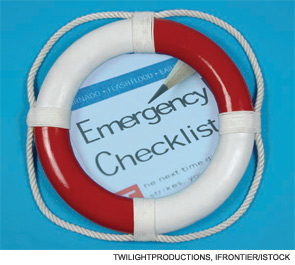Consider adding business interruption insurance to your business or property policy to cover the loss of revenue if your operations are curtailed or suspended during an insured loss, Dahl suggested. (See “Include Managed Care Contracts in Your Plan.”) If your practice were damaged by fire or water and needed to close for several weeks, business interruption insurance would cover your operating profit, salaries and fixed expenses during that time, he explained. A rider called “extra expense coverage” would pay for the cost of rental space, enabling your practice to remain whole following the loss.
Explore This Issue
September 2011Like most insurance policies, business interruption insurance may include a waiting period, deductible and limitations based on how the policy defines a disaster. The goal is to make sure “you don’t have to lay off your employees or have your physicians go without a paycheck,” Dahl said.
Once your disaster plan is complete, laminate copies of the basic steps and place the template throughout your office, including the physician and staff lounges, so that the information becomes ingrained, Dr. Holt advised.
“Disasters can be very small and personal, so don’t think it can’t happen to you,” he said. “Physicians are in the business of being prepared. Why not prepare for disaster, too?” ENT TODAY

Leave a Reply